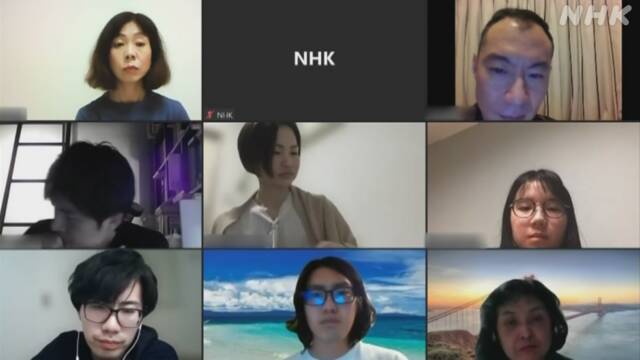The acceptance of people who have evacuated from Ukraine to Japan is increasing.
Therefore, the issue is the “language wall”.
There are increasing cases where AI-based "automatic translation" technology is being used at support sites in various parts of Japan, and demand is increasing as a bridge between Ukraine and Japan.
The challenge is “the wall of words”
As of the 13th of this month, 557 people have been evacuated from Ukraine to the country.
The government will continue to actively accept refugees and support employment and education, but there is a possibility that the evacuation life will be prolonged, so how to deal with the problem of "language barrier" It has become a big issue.
Under these circumstances, interest in Ukrainian is increasing in Japan, and the number of students taking Ukrainian courses for working adults held at Tokyo University of Foreign Studies has increased by about 30% from the usual year.
A man in his twenties in Saitama Prefecture who participated said, "I think there are very few people in Japan who can understand Ukrainian to some extent. I hope to lower the hurdles for those who evacuate to Japan and feel the language barrier. I am. "
Attention is focused on automatic translation technology
In order to deal with the problem of "language wall", the technology of "automatic translation" using AI is attracting attention.
IT companies in Chiyoda-ku, Tokyo, which provide services for automatically translating documents online for corporations, are receiving a series of inquiries from companies and local governments asking if there is a service that supports Ukrainian.
Up to now, it supports more than 20 languages such as English and Chinese, but from this month we have added a function that supports Ukrainian.
Hiroyuki Ono, General Manager of Terilogy Serviceware, which provides services, said, "I think the problem with accepting refugees is the problem of language. I want to help as a company that provides multilingual translation software." I did.
Widespread use of "portable" interpreters
At the site of support, the use of portable interpreters that interpret Ukrainian and Japanese conversations on the spot is also expanding.
The manufacturer of AI interpreters in Minato-ku, Tokyo provided 1000 units to the Embassy of Ukraine in Japan free of charge, and also provided 300 units to organizations supporting activities in Poland.
The manufacturers received a series of inquiries from local governments, and Tokyo Komae rented a terminal to a woman in her 70s who was evacuated to the city and could not speak Japanese or English.
We will continue to actively lend out any applicants.
Mr. Yasushi Tomita, Director of Policy Office, Komae City Policy Office, said, "I want you to bring a translator to alleviate your anxiety about evacuation life."
According to the manufacturer, more than 900,000 interpreters have been sold worldwide so far, and they are available in 70 languages including Ukrainian.
The number of times Ukrainian has been translated has increased sharply, and comparing mid-January before the invasion with late March after the invasion,
the number of translations from Ukrainian to other languages has increased fivefold
. The number of translations from other languages to Ukrainian has
increased 13 times.
Noriyuki Matsuda, president of Poketalk Co., Ltd., which develops and sells AI interpreters, said, "It is difficult to open a bank account in Japan, and I hear that interpreters will be very helpful. I hope it will be useful to those who support it. "
The future possibilities are ...
Experts point out that the acceptance of refugees from Ukraine may lead to the further spread and development of automatic translation technology.
Professor Minoru Eto of Osaka University, who is familiar with automatic translation technology, said, "Automatic translation has evolved in response to the demands of the times, such as the Cold War and the establishment of the EU, because AI learns and becomes more accurate in languages with more users and translations. There is a history. The acceptance of refugees will lead to the further spread and development of translation technology, and the way of communication between people who do not understand the language may change further in the future. "

